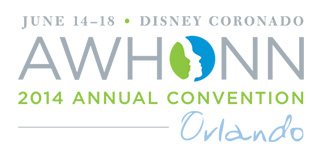B
A Comprehensive Newborn Falls Initiative: One Year Later
Title: A Comprehensive Newborn Falls Initiative: One Year Later
- Recognize causal factors related to newborn falls.
- Describe methods to prevent newborn falls targeting hospital staff.
- Identify newborn falls prevention strategies aimed at parents and families.
Objective:
To reduce and prevent newborn falls at Huntsville Hospital for Women and Children
Design: Evidence-based quality improvement project
Sample:
Mother/Baby Patients and Staff at Huntsville Hospital for Women and Children
Methods:
From December 2011 to July 2012, there were seven newborn falls on the hospital’s postpartum unit. In the spring of 2012, a committee formed to examine each fall event, review the literature on newborn falls, and talk to other hospitals about their experiences. Using this information, the committee created a policy on newborn falls prevention and developed education and tools for family members and staff. A comprehensive Newborn Falls initiative launched in July 2012, and six months later, staff took an anonymous survey to evaluate implementation of the new protocol.
Implementation Strategies:
The Policy and Procedure on Newborn Falls Prevention was implemented in July 2012 and addresses protocol for parental education, infant transport, placement of infant for sleeping, review of maternal medications, assessment of environment and mother’s level of consciousness, and prevention of falls during infant feedings. Staff attended a required class on newborn falls and received further education from staff meetings, emails, and flyers. Two new charting tools (Newborn Fall Risk Assessment Tool, Post-Fall Debriefing Form) were created to address newborn falls. Staff educate family members on falls at admission, the beginning of each shift, and as needed, and instruct parents to call before and after infant feedings so that bed siderails can be raised and lowered as an added precaution. Newborn falls information has also been added to the safety instruction sheet read to and signed by parents at admission, posted on mirrors in patient bathrooms and on signs in rooms, and included in the postpartum booklets and crib cards.
Results:
The staff survey indicates that 100% of staff attended the Newborn Falls class, that 95% report having read the Newborn Falls policy, and that 89% report using the Falls Risk Assessment Tool at least once per shift. During the year following program implementation (July 2012 to July 2013), no newborn falls occurred.
Conclusion/Implications for nursing practice:
Hospitals seeking to reduce and prevent newborn falls may learn from the experience of Huntsville Hospital in its newborn falls initiative.
Keywords: Newborn falls, patient safety, staff and patient education
